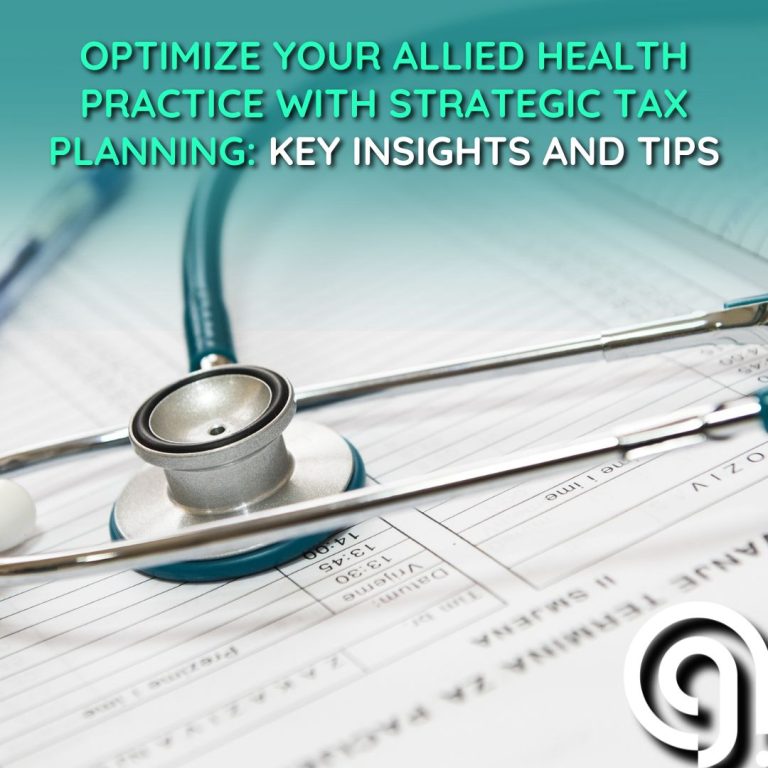Optimise Your Allied Health Practice with Strategic Tax Planning: Key Insights and Tips

Optimise Your Allied Health Practice with Strategic Tax Planning: Key Insights and Tips
As a business owner of an allied health practice, effective tax planning is crucial to maintaining the health and growth of your practice. By taking a proactive approach, you can reduce your tax liability, maximise your deductions, and enhance your cash flow. Here’s how you can leverage tax planning to benefit your practice.
1. Review Your Tax Position
Start by evaluating your taxes paid year to date, including PAYG Instalments. Many practice owners use the PAYG instalment system, which involves prepayment based on your most recent tax return. Tax planning provides a chance to forecast your estimated tax position, assisting with cash flow planning for any outstanding tax liabilities or assessing whether variations to instalments are necessary.
2. Optimise Superannuation Contributions
Concessional superannuation contributions are an effective strategy for high-income earners, such as medical practitioners. These contributions not only maximise your deductions but also support future growth in a low-tax environment, as earnings in superannuation funds are generally taxed at just 15%.
3. Strategically Manage Dividend Payments
When considering dividend payments, pay attention to Division 7A loans, which may require you to meet the ATO’s minimum repayment obligations. With increasing Division 7A interest rates, it’s essential to plan dividend payments strategically to manage these requirements effectively.
4. Evaluate Business Operations and Structure
Tax planning is an ideal time to review your business structure and operations. Consider the following:
Is your business structure still suitable?
Have you assessed your pricing structure for patient fees?
Are your cost structures optimised, or could alternative suppliers be more beneficial?
Have you conducted performance reviews with your staff?
5. Address Further Practical Considerations
Explore additional practical aspects through tax planning, such as:
Application of professional profits tests according to ATO guidelines.
Reviewing service facility agreements and their impact, including payroll tax considerations.
Preparing trustee resolutions for income distribution.
Assessing your broader business and wealth strategy to ensure alignment with personal and family goals.
6. Enhance Cash Flow and Avoid Penalties
Effective tax planning can enhance cash flow by reducing the taxes owed, freeing up resources for everyday operations and growth. Ensure timely lodgement of tax returns and BASs to manage tax payments efficiently and avoid penalties for late or underpayment. Additionally, planning ahead can help synchronise tax commitments with significant expenditures, ensuring smooth operations.
7. Focus on Retirement Savings
Incorporate tax planning into your retirement strategy to maximise savings. By reducing taxes owed on contributions to retirement accounts, you can enhance your retirement benefits and ensure a secure future.
Take Action Today
Proactive tax planning should not be left until the last minute. To fully benefit from these strategies, start your planning well before July 1. Effective timing is key to optimising benefits and achieving operational harmony.
At Aero Accounting Group, we are dedicated to supporting allied health professionals through effective tax planning. Our expert team can assist you in navigating your tax obligations, maximising deductions, and improving your overall practice efficiency.
Ready to take the next step? Contact Aero Accounting Group today to schedule a consultation and enhance your practice’s performance!

Need help?
Not sure if your current accountant is a good long-term fit? Contact us at Aero Accounting Group today and we’ll help you minimise your taxes and maximise your profits





